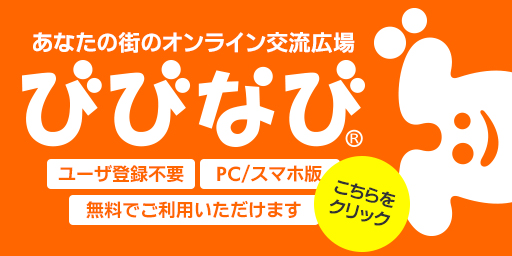JAPANESE COMMUNITY RELATED NEWS
(SUPPORTING BY THE NIPPON CLUB)
What to do if you think you or a family member may have coronavirus
04/16/20

-
Written by: Maki Kano-Lueckerath, M.D.
Vice President, JMSA
Attending in Internal Medicine and Pediatrics, The Mount Sinai Japanese Medical PracticeDuring this difficult time, as we face a Pandemic of COVID-19, many people are grappling with questions of what to do if they become sick with symptoms or if a loved one becomes sick.
A vast majority of those infected with coronavirus (80%) will develop only mild or moderated symptoms. But many people remain frightened and wonder how and when to seek medical care.
Please note that information and recommendations are being updated on a daily basis. This advice is from the perspective of me, Dr. Maki Kano-Lueckerath, primary care provider in internal medicine and pediatrics, on March 25, 2020.
Some common questions:
1.How do I get tested or get my family members tested?
If you develop symptoms that are consistent with the coronavirus such as fever, cough, and or respiratory symptoms, first thing to do is to call you doctor’s office for advice.
Most doctor’s offices cannot accept sick patients- such as those with fever or cough at this time due to the potential risk of spreading coronavirus to the staff and other patients.
If you are concerned about your symptoms, call your doctor’s office first and don’t just walk in and ask about how you can arrange to discuss your concerns with the doctor or nurse.
Most doctor offices are offering some type of virtual, video visits which are skype like visits where you and your doctor can see each other virtually. During the video visit, your doctor will advise you on what medications you can take for the symptoms such as fever and will assess the level of your symptoms.
These days, in most areas of New York State, a person who has mild to moderate symptoms that could be consistent with corona virus are not being tested for the corona virus. Part of this has to do with the fact that there is shortage of supplies and personal protective equipment needed to test the patient. The other part is that even if a person tests positive for the coronavirus, there are no direct medications available so the advice given to the patient would be the same whether or not they were tested.
Therefore, most people that are stable will likely never get tested for the corona virus. This is frustrating and concerning for many people but whether you get tested or not, you must rely on the same treatments and precautions.
2.If you suspect you may have corona virus, don’t run to the emergency room:
The Emergency room is full of very sick patients, many who may actually be infected with corona virus.
It is much safer therefore to call your doctor’s office and arrange a telephone call or video visit with your doctor.
Those who are severely ill, having trouble breathing or are unstable will be directed to an emergency room setting where they will be likely get tested for coronavirus, especially if they will need to be admitted to the hospital.
Anytime a person is having severe trouble breathing, bluish color in their face, confusion or inability to be aroused or any other severe and concerning symptoms and the patient cannot reach an outpatient doctor, he or she must go to the hospital and emergency for urgent care.
3. What types of people are considered high risk for a more severe illness with the coronavirus.
Patient who are elderly, immunocompromised, have a history of lung disease such as asthma or COPD or patients with diabetes and other chronic disease such as cancer are at greater risk of developing severe symptoms that would warrant need to be hospitalized. Generally school aged children seem to have milder symptoms. However, many people aged 20 to 50 have been sick enough to be hospitalized with COVID-19.
4. How should we care for people at home who have symptoms or have tested positive for the virus?
Since most people who get infected with the coronavirus will have mild to moderate symptoms, and they will be managed at home. The person who is infected should self-isolate themselves in a separate room and use a separate bathroom if possible.
The fever is best managed with acetaminophen (Tylenol) and the patient should be well hydrated. The patient should not interact with the rest of the family members. All should wear a mask and food and essentials should be left outside the door.
If the infected person is a child, it become more challenging for the parent to completely separate him or herself from the child but must do as much as possible to minimize contact.
The person who is sick with presumed or confirmed coronavirus must self-isolate and the close contacts and family members who live in the same apartment or house must self-quarantine themselves for 14 days.
5. How long will it take for a sick person to recover?
According to the CDC, most people feel better after one week.
Home isolation can generally end after:
1)No fever for at least 72 hours- without use of medicine that reduces fevers)
2)Symptoms such as cough and shortness of breath are gone.
3)At least 7 days have passed since the patient’s symptoms first appeared.
4)A hospitalized patient will typically be released after two negative tests, 24 hours a part.
Many people who are mildly to moderately sick at home will never get a test to confirm they have COVID-19 but at this time when there a lot of community spread, anyone with symptoms such as cough and fever should presume they have been infected with the coronavirus and take precautions. All contacts must then self-quarantine themselves from that person.
Call your doctor’s office and ask about options for video visits.
Below please find information pertaining to video visits at the Manhattan and Hartsdale Mount Sinai Japanese Medical Practice. Video visits are helpful for those who are worried about the corona virus but are also a good way to be able to consult your doctor virtually, without having to go to physically to the doctor’s office.
Manhattan Office:
Tel. 212-889-2119 8am~4:45pm(Monday – Friday)Hartsdale Office:
Tel. 914-997-1220 9am~5pm(Monday – Friday)▶︎Mount Sinai Doctors Japanese Medical Practice
▶︎How to Schedule and use MyChart Video Visits(YouTube)▶︎Video visits for patients by Mount Sinai Japanese Medical Practice
(Information for this article obtained from CDC website and New York Times Article- What to do if you or your loved one might have the coronavirus” dated March 22, updated March 23, 2020.








